Tutorials / PEOPLE, COMPOSITION
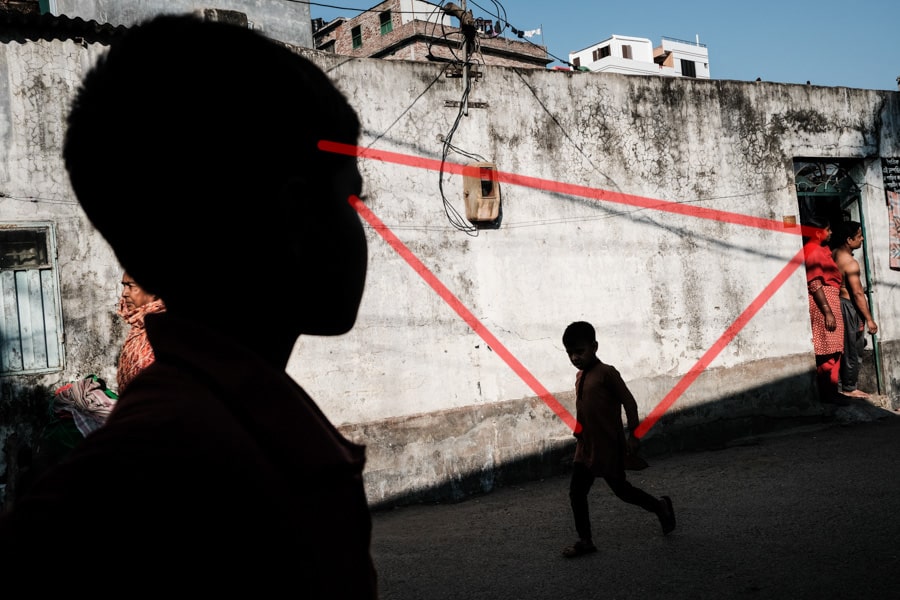
Using Triangles in Composition
In my early days as a photography teacher, I accompanied two nice Australian ladies for a week of photography through Vietnam. They had recently attended a week-long photo workshop in Cambodia but still, when I met them, they didn’t seem to really know what they were doing with their cameras. So, a little perplexed, I asked them, “What exactly did you learn during your workshop in Cambodia?” To which they replied, “We learned about triangles!” I was dumbfounded. They spent a week in Cambodia learning about triangles?! What kind of photo workshop was that?! Now, after 10 more years of teaching photography, things have come full circle, and I just cannot stop talking about triangles. The pointy three-sided things are my new favourite topic. Here are just a few reasons why… Obviously, looking for triangles isn’t the first thing a newbie photographer should focus on. They should start by learning their camera settings and the basics of composition. If I had to put it in an order (which is not something we usually do with art), I’d say that looking for triangles comes right after applying the rule of thirds. But more on that later on. When I talk about triangles, I mean two things: It is pretty straightforward. Three things = triangle. Easy, right? But of course, ‘three’ only comes after ‘one’ and ‘two’ (I know, you’re learning incredible things in this tutorial, even how to count!) Looking for triangles is the next step after mastering the rule of thirds. As we explained in a previous tutorial, the rule of thirds goes beyond just placing your subject in a third of the frame. It also pushes you, as the photographer, to balance your image by finding another element to add on the opposite third. It challenges you to first find one point of interest, and then pushes you further to find another. Looking for triangles is taking things that step further. Once you have two elements on each third, you can find the third one and fill your frame with it. At this stage, it’s important for you to fill your frame with this triangle. This will allow the viewers’ eyes to flow through the whole frame, ideally from one point on the triangle to the other, then to the other. By not having any unused space in the frame, filling your frame with three elements will keep your viewer busy and keep them exploring your photo longer. To do this most effectively, it’s best to try and place the three elements throughout the frame, starting in the corners, and avoid creating flat lines which are less dynamic. In this image, I have three elements but nothing pulls my eyes to the bottom of the frame. As a photographer, you should try and place the lines of your triangle diagonally through your frame. This will also increase the general dynamism of your compositions. When we discussed the use of rhythm in photography, we used a lot of triangles to start composing more dynamic rhythms. After all, because of the energy triangles create, they are a great way to compose images that fit lively situations. Triangles can also help you compose more energetic images from quiet scenes, ones that could easily look dull otherwise. In this case, you don’t have to achieve perfect triangles spread evenly through the frame. The mere use of three elements will fit the rule of odds and increase the chances of improving the quality of your image. A pretty mundane scene made more interesting by the inclusion of three elements. Playing what I like to call “the layering game” is one of my favourite things to do with a camera in my hand. And triangles form a great starting point to quickly improve your layering. As we already discussed in our layering tutorial, looking for three points of interest will help you to create depth in your images, increase dynamism, tell better stories and create a more harmonious composition. It took me a long time to fully understand the benefits of a 3-pointed shape. And it seems my two Australian friends were right; looking for triangles is an essential part of people photography. Hunting for triangles will help you to improve your compositions. It will inject energy into a scene, add depth to a flat image, and importantly, it will open the door to all the fun you can have with layers. 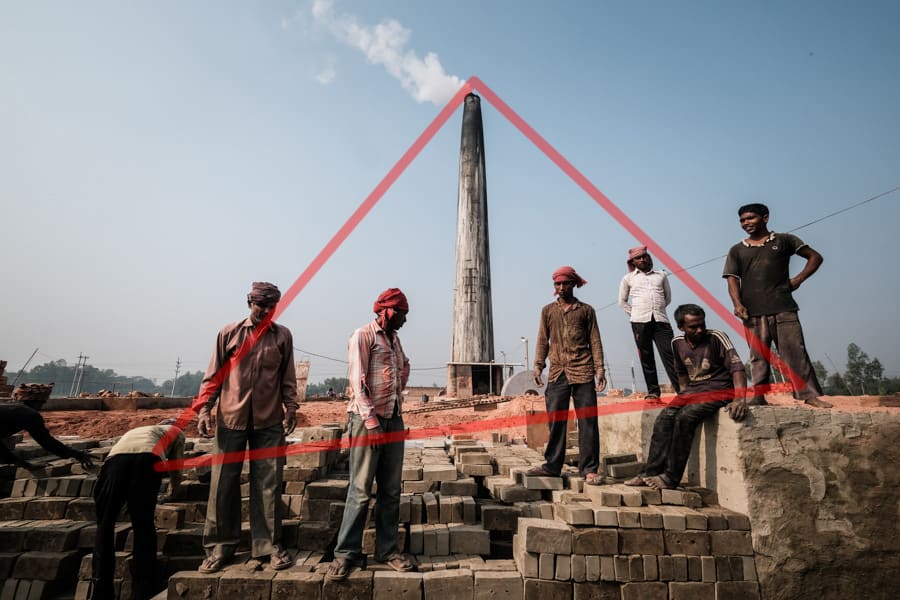
Triangles help to push the rule of thirds even further
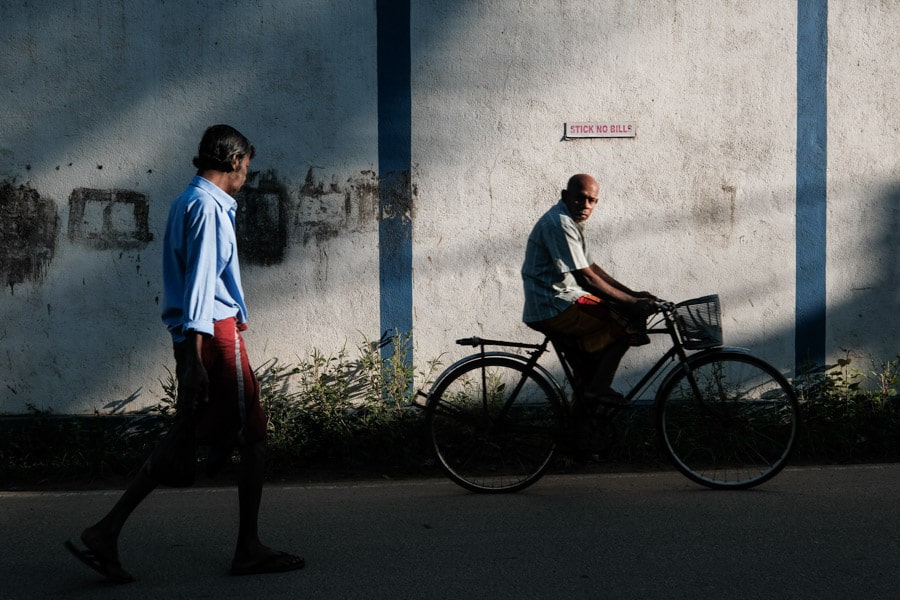
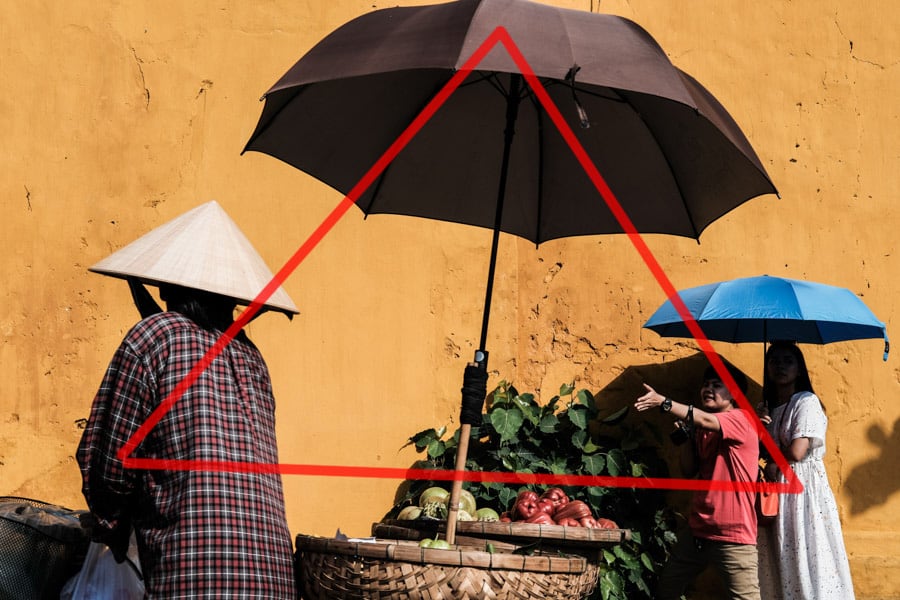
Triangles help lead the eyes of the viewer from one corner of your frame to the other
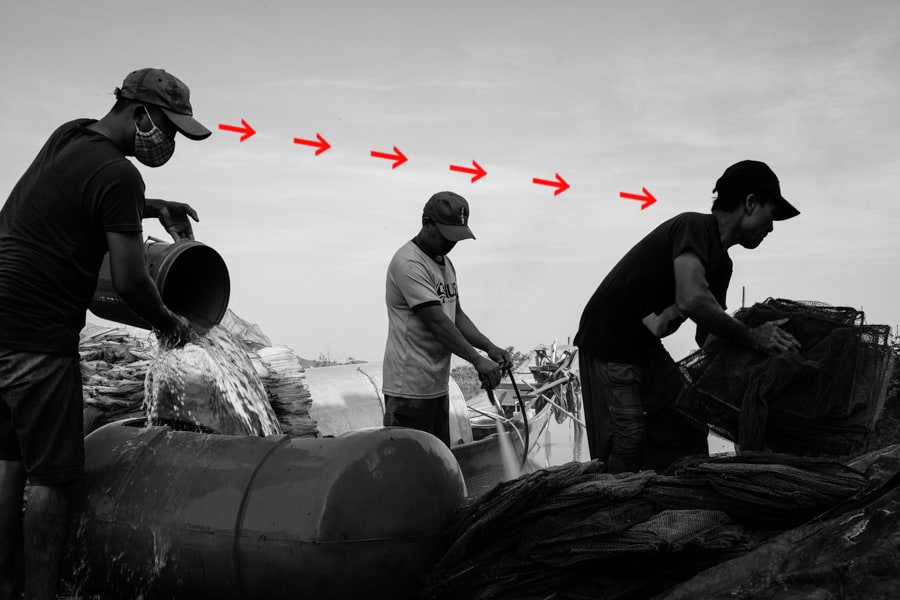
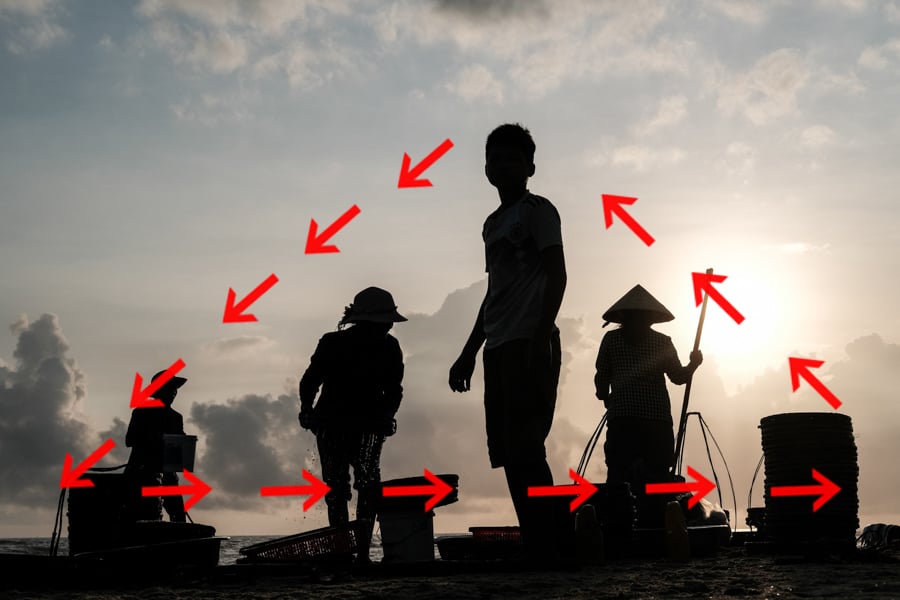
Triangles help you create much more dynamic compositions

Triangles are the first step to more layering
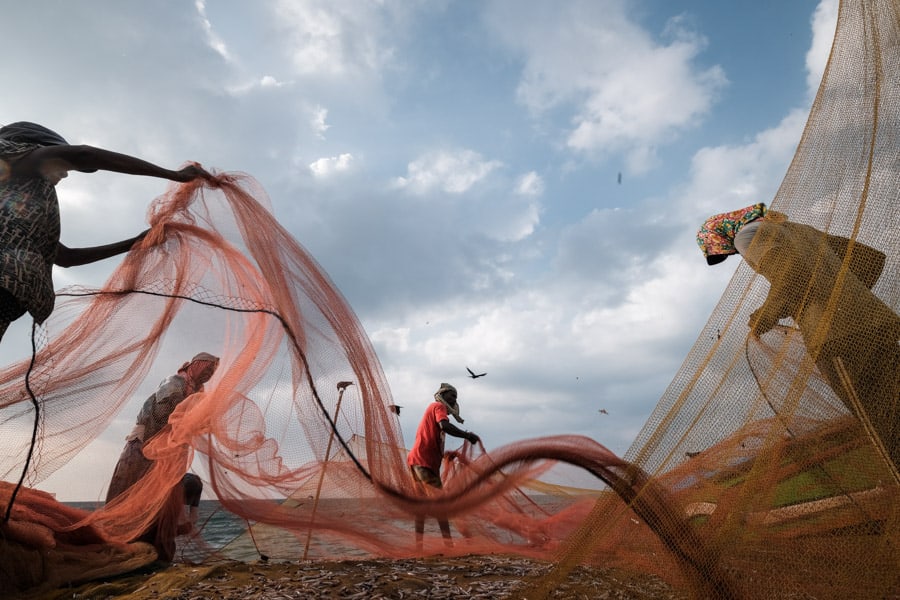
Conclusion: Get Pointy When You Point Your Camera!

